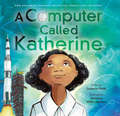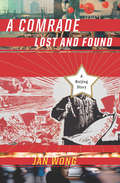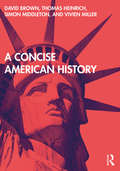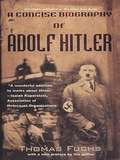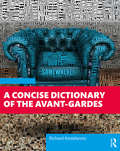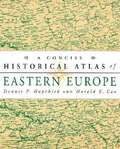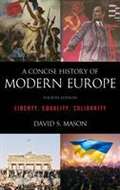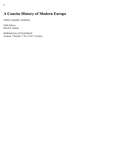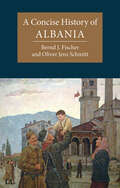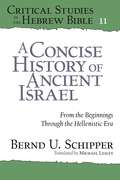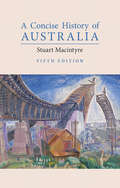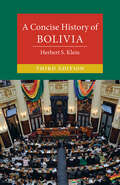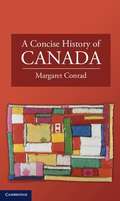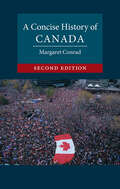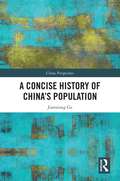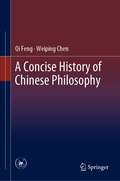- Table View
- List View
A Computer Called Katherine: How Katherine Johnson Helped Put America on the Moon
by Suzanne SladeThe inspiring true story of mathematician Katherine Johnson--made famous by the award-winning film Hidden Figures--who counted and computed her way to NASA and helped put a man on the moon!Katherine knew it was wrong that African Americans didn't have the same rights as others--as wrong as 5+5=12. She knew it was wrong that people thought women could only be teachers or nurses--as wrong as 10-5=3. And she proved everyone wrong by zooming ahead of her classmates, starting college at fifteen, and eventually joining NASA, where her calculations helped pioneer America's first manned flight into space, its first manned orbit of Earth, and the world's first trip to the moon!Award-winning author Suzanne Slade and debut artist Veronica Miller Jamison tell the story of a NASA "computer" in this smartly written, charmingly illustrated biography.
A Comrade Lost and Found: A Beijing Memoir
by Jan WongA &“suspenseful, elegantly written&” account of the author&’s return to China after thirty years to search for the woman she betrayed to the authorities (Publishers Weekly, starred review). In the early 1970s, at the height of the Cultural Revolution, Jan Wong traveled from Canada to Beijing University—where she would become one of only two Westerners permitted to study. One day a fellow student, Yin Luoyi, asked for her help getting to the United States. Wong, then a starry-eyed Maoist from Montreal, immediately reported her to the authorities, and shortly thereafter Yin disappeared. Thirty-three years later, hoping to make amends, Wong revisits the Chinese capital to search for the person who has haunted her conscience. At the very least, she wants to discover whether Yin survived. But Wong finds the new Beijing bewildering. Phone numbers, addresses, and even names change with startling frequency. In a society determined to bury the past, Yin Luoyi will be hard to find. As Wong traces her way from one former comrade to the next, she unearths not only the fate of the woman she betrayed but the strange and dramatic transformation of contemporary China. In this memoir, she tells how her journey rekindled all of her love for—and disillusionment with—her ancestral land. &“Gone is the semirural capital where the author&’s &‘revolutionary&’ course of study included bouts of hard labor and &‘self criticism&’ sessions. In its place are eight-lane expressways lit up &‘like Christmas trees,&’ shiny skyscrapers and the largest shopping mall in the world. Wong is a gifted storyteller, and hers is a deeply personal and richly detailed eyewitness account of China&’s journey to glossy modernity.&” —Publishers Weekly, starred review
A Conceptual History of Psychology: Exploring the Tangled Web
by John D. GreenwoodIn the new edition of this original and penetrating book, John D. Greenwood provides an in-depth analysis of the subtle conceptual continuities and discontinuities that inform the history of psychology from the speculations of the Ancient Greeks to contemporary cognitive psychology. He also demonstrates the fashion in which different conceptions of human and animal psychology and behavior have become associated and disassociated over the centuries. Moving easily among psychology, history of science, physiology, and philosophy, Greenwood provides a critically challenging account of the development of psychology as a science. He relates the remarkable stories of the intellectual pioneers of modern psychology, while exploring the social and political milieu in which they operated, and dispels many of the myths of the history of psychology, based upon the best historical scholarship of recent decades. This is an impressive overview that will appeal to scholars and graduate students of the history of psychology.
A Concise American History
by David Brown Simon Middleton Vivien Miller Thomas HeinrichExpertly steering readers through the often tumultuous and exhilarating history of the United States, from its early modern Native American roots to twenty-first-century neoliberalism and the shifting political climate of the past decade, this highly readable textbook provides a compelling overview of American development over the last five centuries. This book avoids either celebratory or condemnatory rhetoric to present a critical examination of domestic America and its interaction with the rest of the world. Balancing coverage of political, social, cultural, and economic history, each chapter also includes a wealth of features to facilitate learning: Timelines situating key events in their wider chronology Lists of topics covered within each chapter for easy reference Concept boxes discussing selected issues in more detail Historiography boxes exploring key debates Chapter summaries offering condensed outlines of the main themes of each chapter Further reading lists guiding readers to additional resources Maps and images bringing to life important events and figures from America’s history Clearly and engagingly written and positioning America’s narrative within the wider global context, this textbook is particularly accessible for non-US students and is the perfect introduction for those new to US history. This textbook is also supported by a companion website offering interactive content including a timeline, multiple-choice quizzes, and links to selected web resources.
A Concise Biography of Adolf Hitler
by Thomas Fuchs"Four Stars." --West Coast Review of Books "Fascinating reading." --Booklist "An engrossing book...excellent." --Oahu Sun Press
A Concise Dictionary of the Avant-Gardes: Concise Edition
by Richard KostelanetzFor a concise edition of his legendary arts dictionary of information and opinion, the distinguished critic and arts historian Richard Kostelanetz selects entries from the 2018 third edition. Typically he provides intelligence unavailable anywhere else, no less in print than online, about a wealth of subjects and individuals. Focused upon what is truly innovative and excellent, Kostelanetz also ranges widely with insight and surprise, including appreciations of artistic athletes such as Muhammad Ali and the Harlem Globetrotters and such collective creations as Las Vegas and his native New York City. Continuing the traditions of cheeky high-style Dictionarysts, honoring Ambrose Bierce and Samuel Johnson (both with individual entries), Kostelanetz offers a "reference book" to be enjoyed, not only in bits and chunks but continuously as one of the ten books someone would take if he or she planned to be stranded on a desert isle.
A Concise Historical Atlas of Eastern Europe
by Dennis P. Hupchick Harold E. CoxThis atlas is concerned with the part of Europe extending from the Balkan Peninsula in the south to Poland and Lithuania in the north.
A Concise History Of Modern Europe: Liberty, Equality, Solidarity
by David MasonHighlighting the key events, ideas, and individuals that have shaped modern Europe, this fresh and lively book provides a concise history of the continent from the Enlightenment to the present. <p><p> Drawing on the enduring theme of revolution, David S. Mason explores the political, economic, and scientific causes and consequences of revolution; the development of human rights and democracy; and issues of European identity and integration. He deliberately avoids a detailed chronology of every country and time period, instead emphasizing the most crucial events in shaping contemporary Europe. <p> Fourteen focused chapters address such topical issues as the Enlightenment; the French Revolution and Napoleon; the Industrial Revolution; the theories and impact of Marx and Darwin; the revolutions of 1848, 1917, and 1989; the unifications of Germany and Italy; European imperialism; the two world wars; the Cold War; the evolution and expansion of the European Union; and current issues confronting Europe. Any reader who wants to view the broad sweep of European history will find this book an engaging narrative, supplemented with maps, timelines, sidebars, photos, and a glossary.
A Concise History Of Modern Europe: Liberty, Equality, Solidarity
by David S. MasonHighlighting the key events, ideas, and individuals that shaped modern Europe, this lively book provides a concise history of the continent from the Enlightenment to the present day. Drawing on the enduring theme of revolution, David S. Mason explores the political, economic, and scientific causes and consequences of revolution; the development of human rights and democracy; and issues of European identity and integration. He deliberately avoids a detailed chronology of every country and time period, instead emphasizing the most crucial events in shaping contemporary Europe. Fourteen focused chapters address such topical issues as the Enlightenment; the French Revolution and Napoleon; the Industrial Revolution; the theories and impact of Marx and Darwin; the revolutions of 1848, 1917, and 1989; the unifications of Germany and Italy; European imperialism; the two world wars; the Cold War; the evolution and expansion of the European Union; and current issues confronting Europe. Any reader who wants to view the broad sweep of European history will find this book an engaging narrative, supplemented with maps, timelines, sidebars, photos, and a glossary.
A Concise History of Albania (Cambridge Concise Histories)
by Bernd J. Fischer Oliver Jens SchmittA Concise History of Albania charts the history of Albania and its people, within their Balkan and European contexts. It shows the country's journey from its ancient past, still shrouded in mystery and controversy, through its difficult transition from a particularly brutal form of communism to an evolving form of democracy and a market economy. Bernd Fischer and Oliver Schmitt challenge some of the traditional narratives concerning the origins of the Albanians, and the relations between Albanians and their Balkan neighbours. This authoritative and up-to-date single-volume history analyses the political, social, economic, and cultural developments which led to the creation of the Albanian state and the modern nation, as well as Albania's more recent experience with authoritarianism, war, and communism. It greatly contributes to our understanding of the challenges facing contemporary Albanians, as well as the issues confronting the region as a whole as it attempts to grapple with one of the last remaining significant ethnic issues in the Balkans.
A Concise History of American Painting and Sculpture
by Matthew BaigellThis clear, thorough and reliable survey of American painting and sculpture from colonial times to the present day covers all the major artists and their works, and outlines the social and cultural background of each period.
A Concise History of Ancient Israel: From the Beginnings Through the Hellenistic Era (Critical Studies in the Hebrew Bible #11)
by Bernd U. SchipperThe history of biblical Israel, as it is told in the Hebrew Bible, differs substantially from the history of ancient Israel as it can be reconstructed using ancient Near Eastern texts and archaeological evidence. In A Concise History of Ancient Israel, Bernd U. Schipper uses this evidence to present a critical revision of the history of Israel and Judah from the late second millennium BCE to the beginning of the Roman period. Considering archaeological material as well as biblical and extrabiblical texts, Schipper argues that the history of "Israel" in the preexilic period took place mostly in the hinterland of the Levant and should be understood in the context of the Neo-Assyrian expansion. He demonstrates that events in the exilic and postexilic periods also played out differently than they are recounted in the biblical books of Ezra and Nehemiah. In contrast to previous scholarship, which focused heavily on Israel’s origins and the monarchic period, Schipper’s history gives equal attention to the Persian and early Hellenistic periods, providing confirmation that a wide variety of forms of YHWH religion existed in the Persian period and persisted into the Hellenistic age.Original and innovative, this brief history provides a new outline of the historical development of ancient Israel that will appeal to students, scholars, and lay readers who desire a concise overview.
A Concise History of Ancient Israel: From the Beginnings Through the Hellenistic Era (Critical Studies in the Hebrew Bible)
by Bernd U. SchipperThe history of biblical Israel, as it is told in the Hebrew Bible, differs substantially from the history of ancient Israel as it can be reconstructed using ancient Near Eastern texts and archaeological evidence. In A Concise History of Ancient Israel, Bernd U. Schipper uses this evidence to present a critical revision of the history of Israel and Judah from the late second millennium BCE to the beginning of the Roman period. Considering archaeological material as well as biblical and extrabiblical texts, Schipper argues that the history of “Israel” in the preexilic period took place mostly in the hinterland of the Levant and should be understood in the context of the Neo-Assyrian expansion. He demonstrates that events in the exilic and postexilic periods also played out differently than they are recounted in the biblical books of Ezra and Nehemiah. In contrast to previous scholarship, which focused heavily on Israel’s origins and the monarchic period, Schipper’s history gives equal attention to the Persian and early Hellenistic periods, providing confirmation that a wide variety of forms of YHWH religion existed in the Persian period and persisted into the Hellenistic age.Original and innovative, this brief history provides a new outline of the historical development of ancient Israel that will appeal to students, scholars, and lay readers who desire a concise overview.
A Concise History of Australia
by Stuart MacintyreAustralia is the last continent to be settled by Europeans, but it also sustains a people and a culture tens of thousands years old. For much of the past 200 years the newcomers have sought to replace the old with the new. This book tells how they imposed themselves on the land, and brought technology, institutions and ideas to make it their own. It relates the advance from penal colony to a prosperous free nation and illustrates how, as a nation created by waves of newcomers, the search for binding traditions was long frustrated by the feeling of rootlessness, until it came to terms with its origins. The third edition of this acclaimed book recounts the key factors - social, economic and political - that have shaped modern-day Australia. It covers the rise and fall of the Howard government, the 2007 election and the apology to the stolen generation. More than ever before, Australians draw on the past to understand their future.
A Concise History of Australia (Cambridge Concise Histories)
by Stuart MacintyreStuart Macintyre, one of Australia's most highly regarded historians, revisits A Concise History of Australia to provoke readers to reconsider Australia's past and its relationship to the present. Integrating new scholarship with the historical record, the fifth edition of A Concise History of Australia brings together the long narrative of Australia's First Nations' peoples; the arrival of Europeans and the era of colonies, convicts, gold and free settlers; the foundation of a nation state; and the social, cultural, political and economic developments that created a modern Australia. As we enter the third decade of the twenty-first century, Macintyre's Australia remains one of achievements and failures. So too the future possibilities are deeply rooted in the country's past endeavours. A Concise History of Australia is an invitation to examine this past.
A Concise History of Austria
by Steven BellerFor a small, prosperous country in the middle of Europe, modern Austria has a very large and complex history, extending far beyond its current borders. Today's Austrians have a problematic relationship with that history, whether with the multi-national history of the Habsburg Monarchy, or with the time between 1938 and 1945 when Austrians were Germans in Hitler's Third Reich. Steven Beller's gripping and comprehensive account traces the remarkable career of Austria through its many transformations, from German borderland, to dynastic enterprise, imperial house, Central European great power, failed Alpine republic, German province, and then successful Alpine republic, building up a picture of the layers of Austrian identity and heritage and their diverse sources. It is a story full of anomalies and ironies, a case study of the other side of European history, without the easy answers of more clearly national narratives, and hence far more relevant to today's world.
A Concise History of Bolivia (Cambridge Concise Histories)
by Herbert S. KleinBolivia is an unusually high-altitude country created by imperial conquest and native adaptions – today, it remains one of the most multi-ethnic societies in the world with one of the largest Amerindian populations in the Americas. It has seen the most social and economic mobility of Indian and mestizo populations in any country in Latin America. This work, having also appeared in Spanish, Portuguese, Japanese and Chinese in its earlier editions, has become the standard survey of the history of Bolivia. In this new edition, Klein explores the changes that occurred in the past two decades under the leadership of Evo Morales and his indigenous government, and how his party has emerged in the post-Evo years as one of the most important in Bolivia. The work also expands on the changes in both the traditional mining economy and the rise of a new commercial export agriculture.
A Concise History of Bolivia, Second Edition
by Herbert S. KleinA Concise History of Bolivia, Second Edition
A Concise History of Brazil
by Boris Fausto Sergio Fausto Arthur Brakel Boris Fausto Sergio Fausto Arthur BrakelA Concise History of Brazil covers almost 500 years of Brazilian history, from the arrival of the Portuguese in the New World to the political events that defined the transition in recent years from an authoritarian to a democratic political regime. Brazilian territorial unity and national identity were forged throughout the nineteenth century, after the proclamation of independence in 1822, resulting in a nation with one common language and wide ethnic and racial variety. Remarkable in this respect, the country nevertheless faces problems of social and ethnic disparity as well as of preservation and adequate use of its natural resources. This book emphasizes topics that have deeply influenced the historical formation of Brazil and affected its existence to the present day, such as the destruction of Indian civilizations, slavery and massive immigration throughout the last decades of the nineteenth century and the first decades of the twentieth century.
A Concise History of Britain 1707-1975
by W. A. SpeckThis book provides a concise, illustrated history of Great Britain over the past three centuries, from its formation as a sovereign state between the Union of England and Scotland in 1707 to its partial loss of sovereignty in the accession to the European Community, confirmed in the referendum result of 1975. Professor Speck emphasises political and social trends. In particular he argues that conservative politics prevailed largely in a deeply conservative society, and that reactionary causes generally obtained more support than radical campaigns. The book is highly illustrated with pictures and photographs and contains a bibliography and other features of use to students and general readers.
A Concise History of Bulgaria (2nd Edition)
by R. J. CramptonThis concise history traces Bulgaria's growth from pre-history, through its days as the center of a powerful medieval empire and five centuries of Ottoman rule, to the political upheavals of the twentieth century which led to three wars. It highlights 1995 to 2004, a vital period during which Bulgaria endured financial meltdown, set itself seriously on the road to reform, elected its former King as prime minister, and finally secured membership in NATO and admission to the European Union.
A Concise History of Canada
by Margaret ConradMargaret Conrad's history of Canada begins with a challenge to its readers. What is Canada? What makes up this diverse, complex, and often contested nation-state? What was its founding moment? And who are its people? Drawing on her many years of experience as a scholar, writer, and teacher of Canadian history, Conrad offers astute answers to these difficult questions. Beginning in Canada's deep past with the arrival of its Aboriginal peoples, she traces its history through the conquest by Europeans, the American Revolutionary War, and the industrialization of the nineteenth and twentieth centuries, to its prosperous present. Despite its successes and its popularity as a destination for immigrants from across the world, Canada remains a curiously reluctant player on the international stage. This intelligent, concise, and lucid book explains just why that is.
A Concise History of Canada (Cambridge Concise Histories)
by Margaret ConradMargaret Conrad's history of Canada explains what makes up this diverse, complex, and often contested nation-state. Beginning in Canada's deep past with the arrival of its Indigenous peoples, she traces its history through the conquest by Europeans, the American Revolutionary War, and Confederation in the nineteenth century to its prosperous present. This impressive second edition has expanded by 20 percent, including revised chapters and an insightful analysis of the fraught relationship between Justin Trudeau and Donald Trump. As a social historian, Conrad emphasizes the relationships between Indigenous peoples and settlers, French and English, Catholic and Protestant, men and women, rich and poor. It is this grounded approach that drives the narrative and makes for compelling reading. Despite its successes and its popularity as a destination for immigrants from across the world, Canada remains a cautious and contested country. This thorough yet concise new edition explains why.
A Concise History of China’s Population (China Perspectives)
by Jianxiong GeThis book provides a comprehensive overview and explanation of China’s population, analyzing its special characteristics and patterns of growth over the past 2,000 years. Topics include its composition, distribution, migration, and deep analysis into China’s historical population. The author aims to answer complicated questions such as how China’s population was formed, when China started its earliest population surveys, how China’s population migrated and was distributed historically, and how existing population data should be evaluated and used now? In addition, the author explores the influence of natural and human-caused disasters, censuses, tax policies, and economic development on China’s population changes. The work also offers a span of rich historical detail related to population control. The book will be a great read to students and scholars of population studies, Chinese studies, ethnology, and those who are interested in Chinese history, archaeology, geography, and sociology.
A Concise History of Chinese Philosophy
by Qi Feng Weiping ChenThis book is an abridged version of Feng Qi’s two major works on the history of philosophy, The Logical Development of Ancient Chinese Philosophy and The Revolutionary Course of Modern Chinese Philosophy. It is a comprehensive history of Chinese philosophy taking the reader from ancient times to the year 1949. It illuminates the characteristics of traditional Chinese philosophy from the broader vantage point of epistemology. The book revolves around important debates including those on “Heaven and humankind” (tian ren天人), “names and actualities” (mingshi名實), “principle and vital force” (liqi理氣), “the Way and visible things” (daoqi道器), “mind and matter/things” (xinwu心物), and “knowledge and action” (zhixing知行). Through discussion of these debates, the course of Chinese philosophy unfolds. Modern Chinese philosophy has made landmark achievements in the development of historical and epistemological theory, namely the “dynamic and revolutionary theory of reflection”. However, modern Chinese philosophy is yet to construct a systematic overview of logic and methodology, as well as questions of human freedom and ideals. Amid this discussion, the question of how contemporary China is to “take the baton” from the thinkers of the modern philosophical revolution is addressed.
